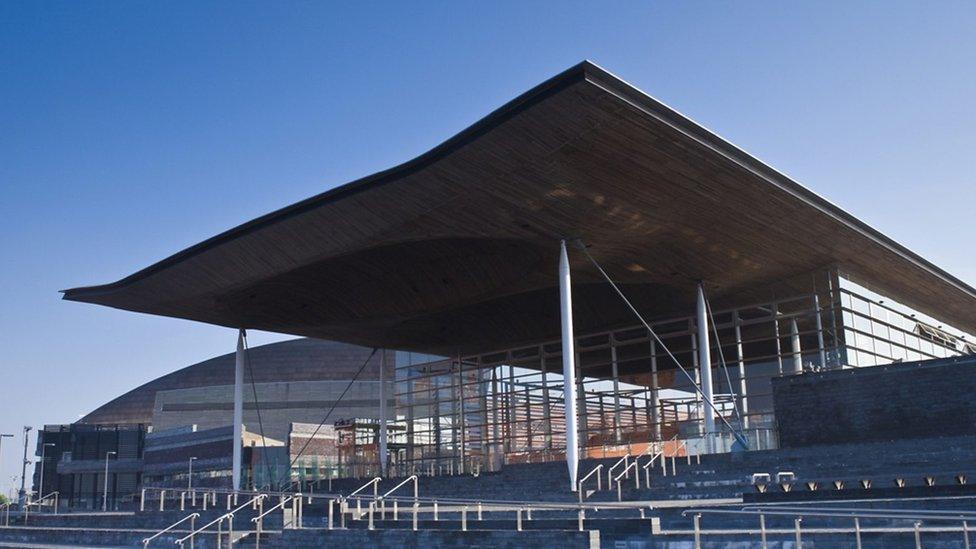BBC Wales boss 'neutral' over devolving broadcasting
- Published
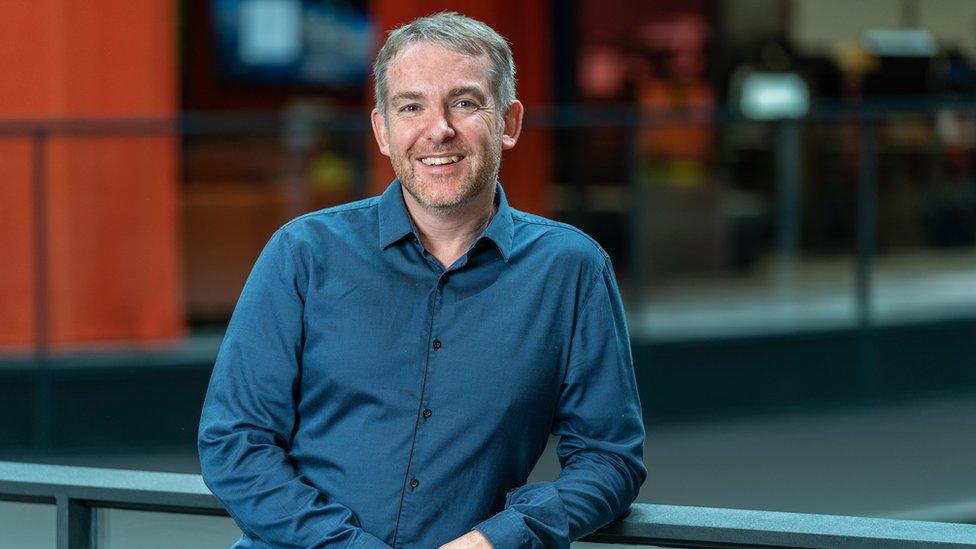
The director of BBC Wales, Rhodri Talfan Davies, gave evidence to the committee on Wednesday
The director of BBC Wales said he was "neutral" about whether powers over broadcasting should be devolved.
But Rhodri Talfan Davies questioned what would be "fixed" by the move.
He was giving evidence to the Welsh assembly's culture committee as it opened its inquiry into the devolution of broadcasting.
He said it was unclear what the objective would be of devolving the powers, and criticised the "romantic" suggestions of some of its supporters.
Neither the Welsh Government nor the UK government is in favour of devolving powers over broadcasting.
The heads of ITV Wales and S4C also gave evidence to the culture, Welsh language and communications committee.
Mr Davies was asked by committee chairwoman Bethan Sayed about the impact on the BBC if powers were devolved.
He said: "I do think the first question should be: 'What is the purpose? What are we trying to fix?'
"We are about to begin negotiating the rights for the Six Nations. How does that work without the financial power of a British body? The BBC's news output blends Welsh news with British and world news.
"Do we want to untie all of that?"
Mr Davies went on: "The orchestra in the building next door [the BBC National Orchestra of Wales] receives half of its funding from Radio 3 for its broadcasts.
"Everything is possible, but perhaps the core question for us to understand is: 'If there is an argument about devolution, what is the result that you are looking for?'"
His position was supported by Phil Henfrey, the head of news and programmes for ITV Wales, who told the committee the debate about devolving powers over broadcasting risked overlooking the appeal of UK programming to Welsh audiences.
He said ITV's schedule was "enjoyed by people in Wales just as much as it is by people in Scotland, England and so on".
"So what is it that devolution is trying to solve?" Mr Henfrey asked.
"The appetite from the viewer is for a broad mix of content that does mix UK with Welsh content."
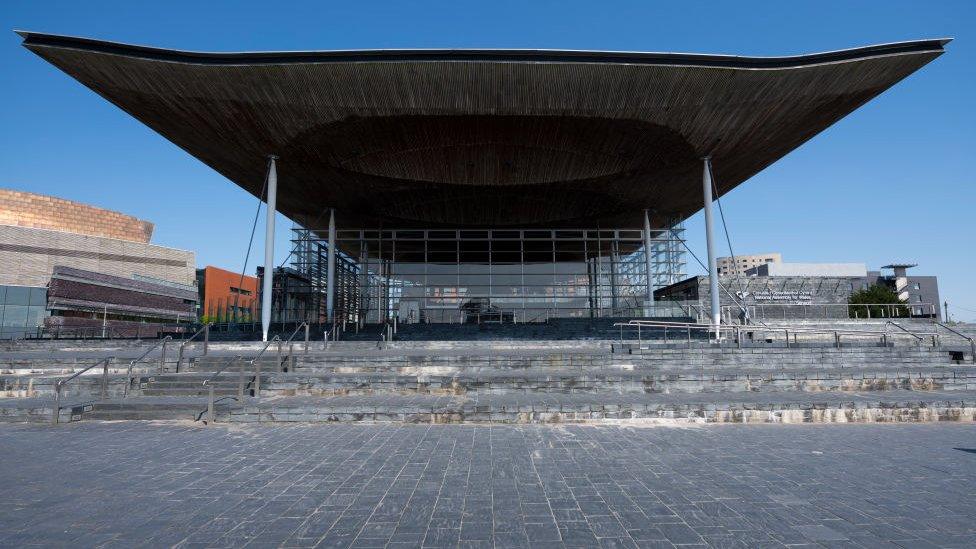
The heads of ITV Wales, BBC Wales and S4C spoke at the Welsh Assembly
Owen Evans, chief executive of S4C, said he was also "neutral" on whether broadcasting powers should be devolved.
But he said a review into its services had already encouraged greater accountability to assembly members and more co-operation with the Welsh Government, particularly in promoting the Welsh language.
"There may be advantages that may come through further devolution, but then you would have to balance them with the bits that we would need to sort out," Mr Evans said.
"[For example] the funding model - does Wales have a licence fee?
"The economies of scale too - that probably doesn't affect us quite as much, but we would still need to work out how we would react to the change of environment."
Mr Davies said future funding arrangements were "material" to the debate over devolving broadcasting.
He added: "That is the elephant in the room in this whole conversation, in any question of devolution: Do you end up with the funding and resources to continue delivering at the same scale and quality?"
- Published10 October 2019
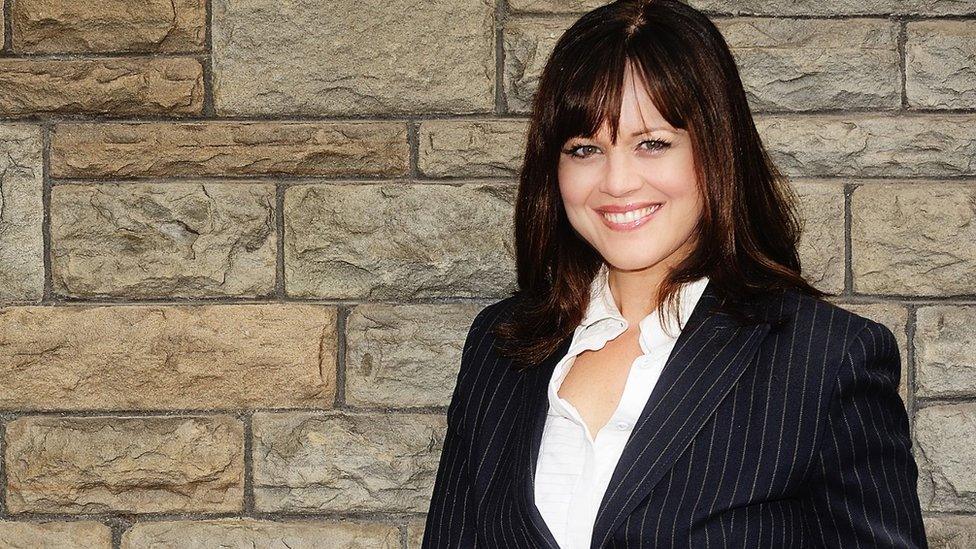
- Published21 October 2019
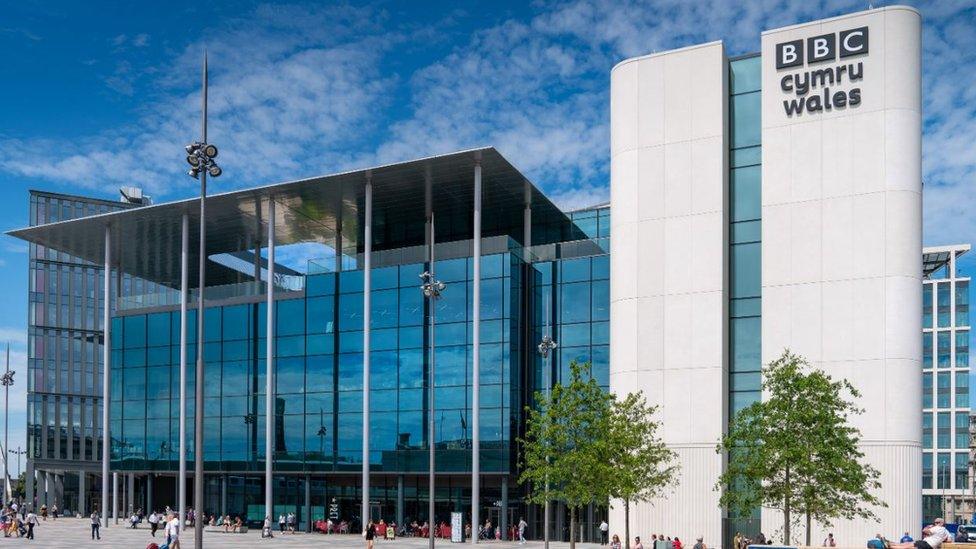
- Published18 September 2017
